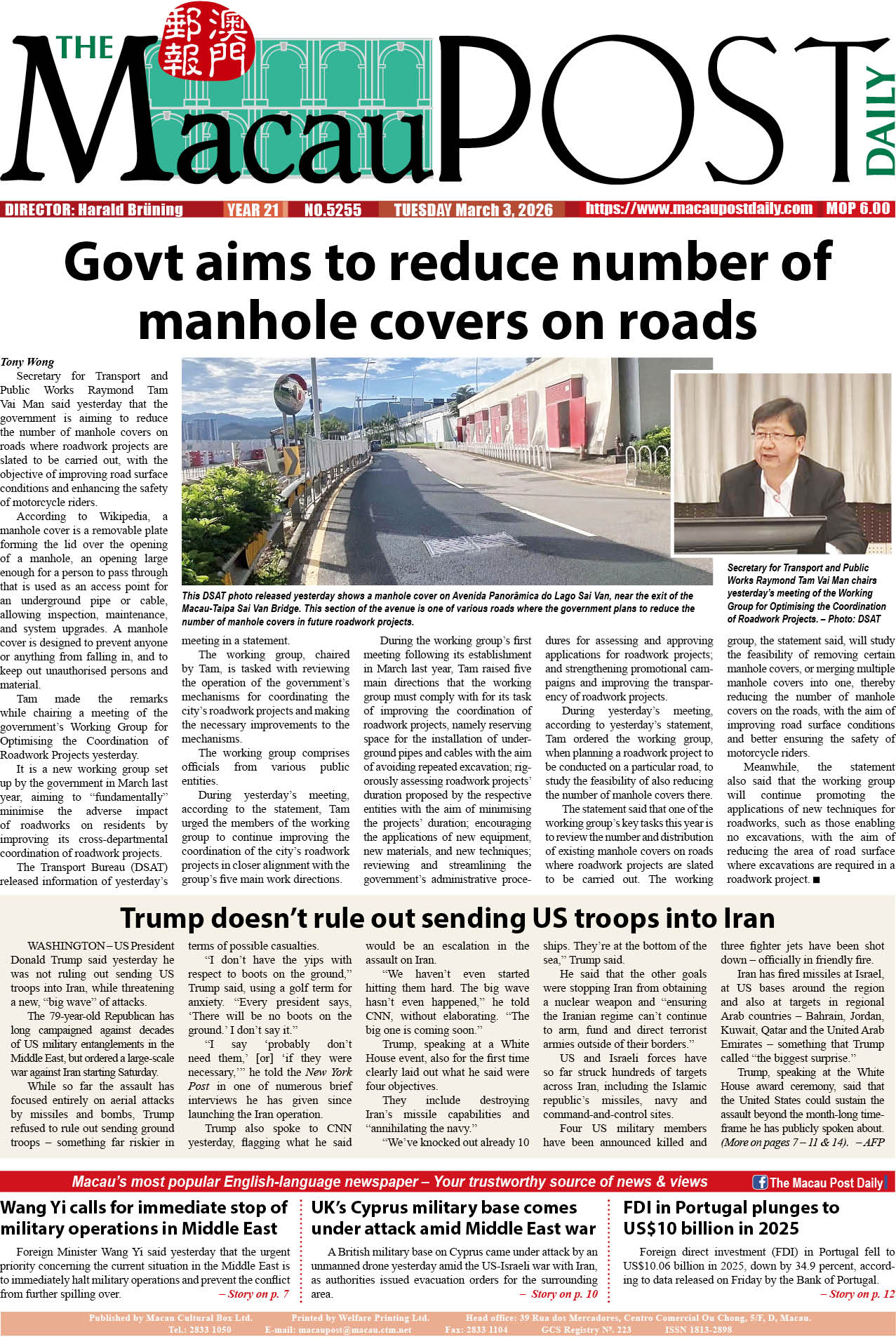Macau’s about 20,000 foreign permanent residents* received yesterday a tremendous midsummer present from Beijing
The gift was warmly welcomed by permanent residents holding foreign nationality like my humble self. We all – wherever we are from – should thank the central authorities for this great bounty.
The National Immigration Administration (NIA) announced yesterday that non-Chinese permanent residents of Hong Kong and Macau will be able to apply for mainland travel permits starting next Wednesday.
According to the Macau Basic Law, permanent residents must have habitually lived in Macau for at least seven years.
The travel cards – which look similar to our Chinese fellow residents’ so-called “home return permits” – will allow their holders to travel to the mainland multiple times within a five-year validity period, with each stay not exceeding 90 days.
However, those intending to work, study, or engage in news reporting and other specific activities while in the mainland still need to apply for specific travel permits. This caveat is reasonable.
As one would expect, Chief Executive Ho Iat Seng yesterday expressed gratitude to the central authorities for once again introducing measures to benefit Macau.
As a foreigner who has enjoyed living and working in Macau for some four decades, I would personally also like to thank the authorities in Beijing for making my life here even more convenient than it already is.
Even though German nationals no longer require a visa to enter the Chinese mainland, I will, of course, apply for the new travel card as one can expect it to be much more convenient than a passport when passing through border checkpoints. Immigration counters for foreign passport holders only tend to be slow-moving and beset with long queues.
The new permit is a special bonus for foreigners deciding to acquire permanent residency status in Macau, which one can expect to boost the local government’s ongoing effort to attract high-quality human resources to work here.
China in general, and the mainland in particular, is an attractive destination for doing business, carrying out investment and engaging in research and development. Macau and Hong Kong, due to their privileged status as China’s currently only two special administrative regions, can now offer foreign permanent residents the extra incentive of easy access to the mainland.
Applications for the new travel permits can be submitted to China Travel Service (Macao) from next Wednesday.
The new travel arrangement for foreign permanent residents is a particularly welcome development in Macau’s “double celebration” year of 2024 – the 75th anniversary of the founding of the People’s Republic of China (PRC) on October 1 and the 25th anniversary of the establishment of the Macau Special Administrative Region (MSAR) on December 20.
While Macau’s around 20,000 foreign permanent residents account for just approximately three percent of the total population, which stood at about 686,000 at the end of the first quarter, according to official demographics, many of them are highly qualified professionals whose knowledge and experience could potentially benefit the overall development of the Greater Bay Area (GBA) – the 11-city conurbation with a population of close to 90 million. And that’s where Macau’s future lies. Convenient travel between Macau and the nine GBA cities in Guangdong not just for Macau’s Chinese but also non-Chinese residents is of utmost importance to achieving the central authorities’ goal of further integration among the nine mainland cities and the nation’s two special administrative regions.
That’s why, I think, yesterday’s announcement is much more important than what it appears to be. It’s not just about facilitating mainland travel for foreign permanent residents from Hong Kong and Macau, it is an important milestone in the two special administrative regions’ further amalgamation with the rest of the nation – without losing their history-laden status and unique social and cultural backgrounds.
Last but not least, yesterday’s announcement also shows, once more, that the central authorities, i.e., the Central People’s Government and the Central Committee of the Communist Party of China (CPC), care deeply about the wellbeing of not just the Chinese but also the non-Chinese residents of Macau and Hong Kong, as well as the future development of the GBA, which is of vital importance to what lies ahead for both SARs.
But Hong Kong and Macau each also have their special strengths enabling them to assist in mainland China’s further socio-economic development in general, and the GBA in particular.
Potentially, a classic win-win situation overall.
*The figure is based on an official source contacted by the Post yesterday.
– Harald Brüning







